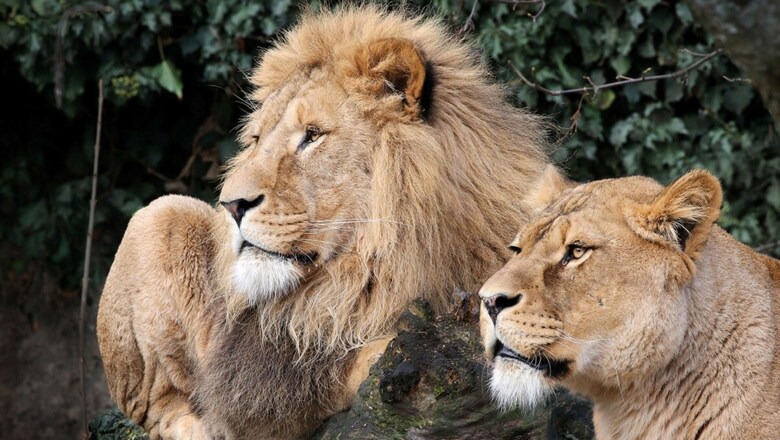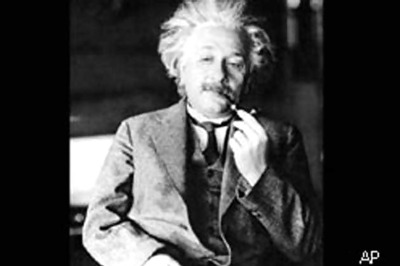
views
In what can be confirmed as first incident of animals contracting Coronavirus in India, eight Asiatic Lions at the Nehru Zoological Park in Hyderabad have tested positive for the novel Coronavirus.
RT-PCR tests of the infected animals were conducted by the Centre for Cellular and Molecular Biology in Hyderabad, examined the nasal and throat samples(oropharyngeal swab) of the big cats. Zoo officials raised an alarm last week when they saw the pack of Lions wheezing with dry cough, nasal discharge and loss of appetite
HUMAN-TO-ANIMAL TRANSMISSION SUSPECTED
Speaking to News18, CCMB director Dr Rakesh Mishra says the Lions have been infected with mild symptoms caused by A2a prototype and are in stable condition
“Genome sequencing has revealed that the animals have not been infected with UK variant or the even more deadly Indian variant B.1.617”, Dr Mishra said, adding that the chain of transmission could have been through an asymptomatic human carrier since at least 20 zookeepers or caretakers working at the Nehru Zoological Park tested positive in the last few weeks
For now, the infected animals have been completely isolated and zookeepers taking care of them have been asked to wear protective gears and masks. The Nehru Zoological Park has been shut for public as a precautionary measure. Other animals in the zoo are also on a close watch
“We have advised the zookeepers to carry on routine checks and disinfect the food given to the animals. Conducting routine tests on wild animals won’t be possible, so we are developing diagnostic tests which will examine faecal discharge of the animals to test the viral load,” Dr Mishra added
NOT THE FIRST INCIDENT IN THE WORLD
The possibility of animals contracting Covid-19 first came to light when a four-year-old female tiger ‘Nadia’ & six others tested positive at Bronx Zoo in New York City in April last year. The animals got infected after getting exposed to an asymptomatic zookeeper.
There have also been isolated instances of pets getting coronavirus elsewhere in the world, but experts have stressed that there is no evidence of them spreading the disease
“Zoo animals are prone to Covid-19 because they live in closed spaces and now that the virus is airborne, the transmissibility rate is quite high,” said Belinda Wright, Executive Director of Wildlife Protection of India.
It is believed that Covid-19 is a zoonotic disease, meaning it came to humans from animals, but there is no clear evidence of animals playing any significant role in spreading the SARS-CoV-2 virus that is prevalent in humans now, but different studies have shown that humans can transit the virus to animals upon close contact.
United States’ top public health body, the Centre for Disease Control and Prevention also confirmed cats, dogs, mink, lions and several other mammals are vulnerable to SARS-CoV-2 virus, but the risk of animals spreading Covid-19 to people is considered to be low
Back home the Union ministry of Environment and Forest has also highlighted that there is no factual evidence that animals can transmit the disease to humans any further.
IS THERE A VACCINE FOR ANIMALS?
Currently there are no vaccines available to shield animals from Covid-19, but Russia has started mass production of what is being called the world’s first anti-covid vaccine for animals called ‘Carnivac-Cov’. The first batch of nearly 20,000 doses will be distributed within Russia to farm owners as there is a great domestic demand for such vaccine.
Read all the Latest News, Breaking News and Coronavirus News here. Follow us on Facebook, Twitter and Telegram.



















Comments
0 comment